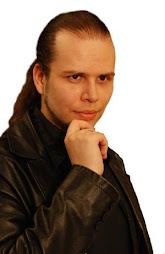I have an acquaintance who is very much familiar with what is happening in the education system in Sweden. He knows about different schools and different methods for teaching and he expressed to me that he was just sick of all the talk about critical thinking. Everywhere the term ”critical thinking” is used almost as a spell, as long as the pupils are taught critical thinking it's not very important that they know anything else. If the schools just teach critical thinking skills the pupils will find all the other information that they need by themselves.
This is of course idiotic and anyone who used critical thinking would realise that this is the case. My guess is that too many fall in the trap of using a popular word without even trying to think about what critical thinking really is.
What it isn't
To think critical about something is not to be able to find the correct information about that something or the correct answer to a question. (Here ”correct” is of course only a temporary property for a certain set of statements. The term ”correct” is relating to the ”truth” which is only an approximation, our current knowledge of the ”Truth” - how things really are.) To do that is to expand the existing knowledge either for oneself, a group of people, or for humanity if what is discovered is something not previously known. To be able to establish the truth is not the same as being able to think critically. To think critically comes before finding the truth and sometimes a truth cannot be found but it is still possible to think critically before that.
To think critically is not to doubt everything. That is what skepticism is often accused of as well, being nothing but doubt of all assertions. But there is not much thinking involved in doubting everything. It is also not very efficient to doubt everything even if one tries to do it in a Cartesian way in order to find a fundamental Truth, something that cannot be a mistaken impression or a lie by a deceitful god. It would also be difficult to avoid solipsism if one begin to doubt everything.
It is in my opinion likely that critical thinking is not one thing but a collection of different important techniques that has to be used and weighted with judgement. To do this is to employ critical thinking skills. The indiscriminating doubt of everything is not critical thinking but doubt is likely to sometimes be the result of judging the evidence at hand, and it can also be an important part in weighing the evidence. To acquire the skill for critical thinking include both knowing the different techniques and having the experience of using them, non of which is easy or comes natural to us humans. Today I am beginning to write a series of blog-posts about important elements of critical thinking. The first one is Heuristics
Important parts of critical thinking – Heuristics
Some relatively simple heuristics is a part of critical thinking. These might be so well known that they are even made into proverbs. If something sounds too good to be true it probably is – is one that most people have heard. It is probably also possible to include longer stories that are teaching an important lesson of what to do or not to do. To cry wolf is something that is bad, you can understand this either by thinking about how people would react to constantly get false alarms or you can learn it from the story.
But is it critical thinking to know that crying wolf is not a good thing to do? No, not really, the critical thinking part comes earlier. If we get the impulse to sound the alarm even if we know that there is no danger, we can either act on the impulse or think about it and chose not to. In reality we have a choice between the immediate satisfaction of an impulse or to consider what might be good for us in the future if we would need to sound the alarm for real. That it is bad to cry wolf is not something that is set in stone, from an individuals point of view it might be more rewarding to follow the initial impulse and have a laugh sounding the alarm. It can probably be argued that for a society it is bad if people have the habit of crying wolf. But what says that an individual should place the benefit of society above the joy of following an impulse? This is one reason why heuristics are never 100%. But this kind of reasoning is not likely to take place in the head of the person tempted to sound the alarm. The Story About the Boy Who Cried Wolf is a way to avoid thinking critically and arrive at the conclusion without thinking. That is to say the opposite of critical thinking. If we start to think critically about heuristics we realise that they are general rules that are questionable.
I still consider heuristics to be an important part of critical thinking, not because it always leads one to a correct result but because it gives us a quick warning about when we need to start thinking. The heuristics are there because we as a species have learned to not trust our impulses all the time, and we use our culture to give us warnings in tricky situations. The heuristics are something like a starting point for critical thinking. Unfortunately we don't have heuristics for all situations and some people follow them more or less blindly. They have limits but with all their faults they can still not be ignored.
This blog is about science, pseudoscience, manipulation, magic, and outright lies
Subscribe to:
Post Comments (Atom)



No comments:
Post a Comment